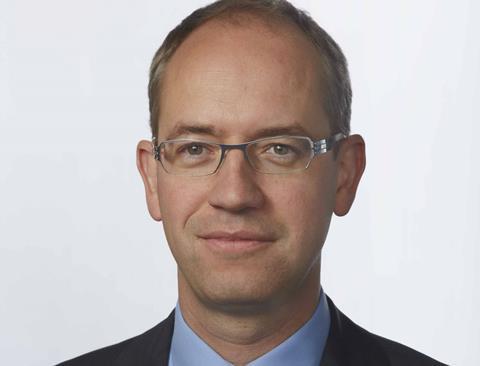The news last week that Triuva has sourced a €120 mln portfolio of Italian high street retail properties on behalf of a Dutch institutional client of CBRE Global Investment Partners (CBRE GIP) signals the new direction that the Frankfurt-based management company is taking following its rebranding in 2015.

Under its new name, the former institutional business of German property group IVG is pitching itself as a provider and manager of structured real-estate products for institutional investors, with a focus on clients from new geographies such as the Netherlands and Scandinavia, the company CEO's Wenzel Hoberg told PropertyEU in an interview.
The company's traditional client base is located in Germany and to a lesser extent Austria, he pointed out. 'What's new with this deal and this Dutch client is that we are tapping into an investor base outside our home turf on behalf of world-class investors served by some by our big competitors.’ Hoberg did not rule out further expansion but said the Netherlands and Scandinavia were Triuva’s next point of capital raising activity. 'We will take new countries step by step.'
Hoberg said the Italian deal was 'meaningful', not so much for the scale but for the parties involved. ‘Institutional investors are our normal client base and in Germany it's not so unusual to work with our competitors via their master funds or special vehicles (like KVGs ed) and to channel investments into our own funds. In that sense, this deal is a strategic benchmark.’
The Dutch client is believed to be pension fund administrator PGGM, while Savills Investment Management won the mandate to structure the deal via its Italian company. This is the first time that Triuva has sourced and structured a deal in this way and Hoberg likened it to a fund -of-funds transaction. 'Will it be the first of more deals? I hope so. We would like to expand this venture and start a similar relationship with other clients.'
Tax efficient
In general Triuva structures its deals via limited partnerships or special Luxembourg or German vehicles with a view to avoiding tax leakage. However, these regular options weren’t optimal for the Italian deal which explains the multi-level management that has been implemented.
The multi-level structuring is also a response to the changing real estate investment management landscape, Hoberg said. ‘The whole industry is diversifying away from the traditional one-stop service providers. On the one hand we're seeing consolidation of the bigger investment managers and on the other the further development of asset management specialists. The industry is becoming more flexible and we're seeing more demand for custom-tailored vehicles and services.'
Investors are trying to pool the overall universe of fund vehicles in master funds, he added. 'At the same time, they want more influence over their investment portfolios. We ourselves have tranched out some of our large comingled funds and added some more nimble targeted funds, separate accounts and club deals. Sometimes we’re on top of the deal, sometimes our competitors have the deal and we provide capital or vice versa. We work well together.’
Hoberg conceded that Triuva's strategic shift implied adjustments to both its reporting and fee structures. 'It is a different pecking order that we need to get used to. But we are one of the few investment managers focused exclusively on institutional capital. We are quite lean and as we are not bank owned. We can be flexible about the structure of an investment.'
New phase
Triuva's European expansion plans mark a new phase in its development since its rebranding. Until September 2015, the company operated under the umbrella of IVG Immobilien as IVG Institutional Funds GmbH, but IVG’s insolvency effectively contaminated the institutional business, despite the fact that the fund vehicles were not affected by the problems at the listed Frankfurt-based office company. In fact, the institutional funds 'sailed through' the crisis, to quote Hoberg, but they didn’t grow during the period and lost market share.
Steps were subsequently taken to detach the institutional business from the tainted IVG legacy and IVG's core office operations were spun out as OfficeFirst and subsequently sold to US alternative investment giant Blackstone for €3.3 bn. That deal was finalised in April this year.
Restructuring
IVG Immobilien has now been reduced to a financial holding company focusing on two independently operating corporate entities – Triuva and Storag Etzel. The latter company bundles together IVG's old cavern operations as well as its gas and oil portfolio. Hoberg: 'At Triuva we are resetting the platform for the market. We have restructured our professional team and it is even leaner and more efficient and integrated on a European level. We are now looking forward to the future.'
Triuva has assets under management of around €10 bn and focuses in particular on commercial properties in the office, retail and logistics sector in Europe.
In 2015, the company sold off assets worth some €2 bn and bought assets worth around €1 bn. Hoberg: 'The assets under management have shrunk and our legacy portfolios have been liquidated, so that we now can put our history behind us. In 2016 we did 66 deals in total, a lot more single assets and a lot fewer portfolios. The 2016 acquisition volume exceeded the disposals by some €250 mln. We are now shifting into a forward gear and growing the asset base again.'










